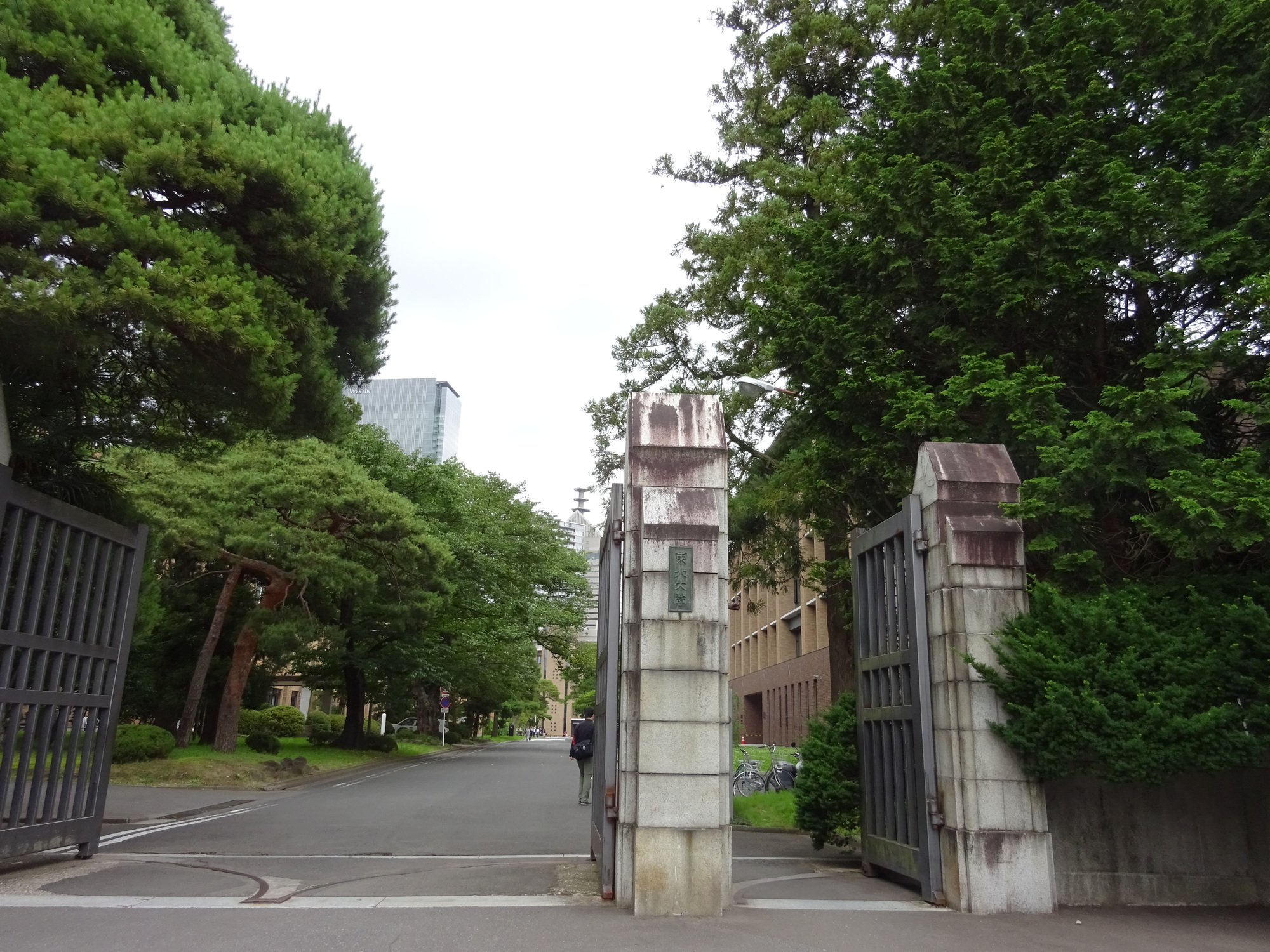In 2017, Mr. Yuki Hanyu, who was the first Japanese to be selected for Singularity University's GSP (Global Solution Program), answered the organizer's question, "What is your MTP?" I answered and laughed.
MTP stands for Massive Transformative Purpose.Mr. Hanyu understands that it means "What are you going to do with your life?"Anime science is a coined word that is conscious of Hollywood movie physics (the physics that appears in the movie "Star Trek"). He said that he wanted to emphasize that science fiction animation depicts science, that it may be absurd but fun, and that it has a brighter tone than that depicted in Hollywood movies.
Singularity University is a private school established in 1 by Ray Kurzweil, the proponent of the singularity concept*2008, and critic Peter Diamandis.We carry out various educational activities, one of which is GSP.The GIC (Global Impact Challenge), a contest that gathers young people who are willing to take on the challenge of solving global problems with ideas that have penetrated the world, is held in various parts of the world, and the best winners at each venue are sent to Silicon Valley. A 10-week training camp by invitation.Hanyu is the first Japanese to do so.Selected from 2017 people at GIC held for the first time in Japan in 6,000, sponsored by Sony Corporation.
“In addition to entrepreneurs, researchers and engineers, there were also young people involved in policy planning. An experiment to see what kind of chemical reaction would occur if cutting-edge technology was given to people with extraordinary abilities selected from around the world. Wasn't it?" said Hanyu. “I am still in frequent contact with my colleagues from that time. GSP was definitely one of the turning points in my life,” he recalls.
*1 In Japanese, it is translated as “technical singularity”.The moment in scientific history when superintelligence is born.At this point, AI (artificial intelligence) refers to "the point at which it becomes possible to create intelligence that is smarter than humans."
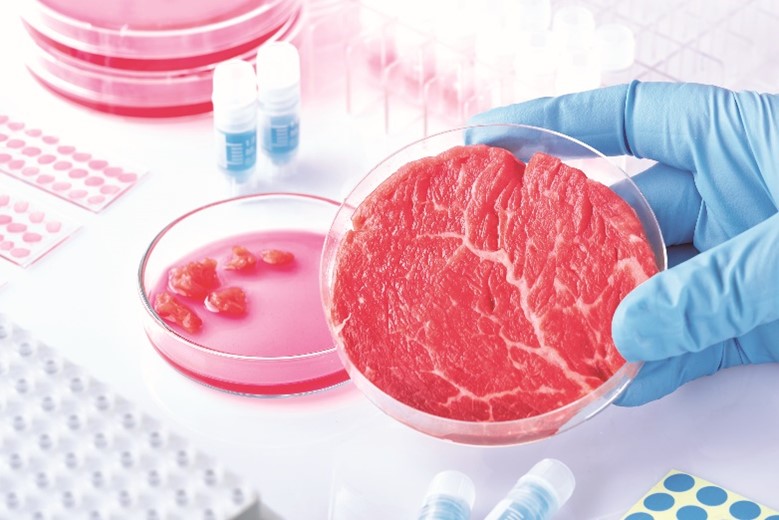
Hanyu's accepted theme is "saving the world's food crisis with artificial cultured meat"
Artificial cultured meat is a type of alternative protein source, but unlike those derived from animal food, it is made by immersing living animal stem cells (for example, muscle cells) in a special culture solution and growing them. It attracted attention at a tasting party held by Dr. Mark Post, a professor at Maastricht University in the Netherlands.In English, it is called cell-based meat, and in recent years, it is generally called “cellular food” in Japan, including cultured fish meat and cultured fat.
The technology to produce meat with the same ingredients as the real thing without killing animals will help us avoid food shortages due to rapid population growth, especially the increase in meat consumption in developing countries where economic growth is remarkable, and the "protein crisis" that is a concern. I have high hopes.In addition, by putting a brake on the increase in livestock farming, which leads to the mass consumption of grain and water, we will reduce greenhouse gases such as CO2. will also contribute to the improvement of
According to Mr. Hanyu, the success or failure of development depends not only on the culture medium, culture solution, and culture technology, but also on the construction of a plant for mass production.How much can we reduce the production cost, which was originally 200 million yen for 3000g and is said to be several million yen even now?Mr. Hanyu and his colleagues are garnering attention for their unique materials and technology that can be reduced to 3 yen or less, and for the public release of the infrastructure built on that basis, a new infrastructure for cellular agriculture*2. It aims to create rules for new industries.
*2 Cellular agriculture is a method of producing products originally harvested from animals and plants by culturing specific cells.Cellular food is one such product.
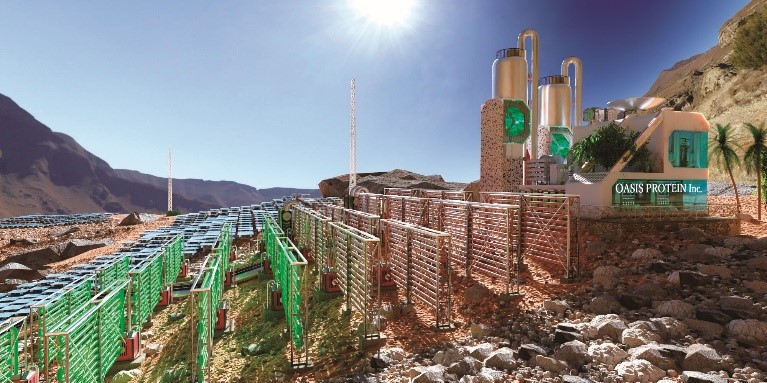
It started with doujin circle activities
Hanyu got the idea to develop cellular foods in 2013 at an entrepreneurship seminar hosted by Koto Ward.So he said, ``I want to do something like science fiction.'' ``If, for example, we can make meat artificially, we won't have any problems even if humans live on Mars in the future.''
In 2014, he started the Shojinmeat Project (a research and development project for cultured meat) at a small hangout in Tokyo.At first, we were plagued by the high cost of serum, which is essential for culture, but Kazuko Kawashima (currently CTO of Integriculture Co., Ltd.), who joined the company in 2016, used a method called "co-culture"*3. This proposal gave impetus to development.
The uniqueness of the Shojinmeat Project is not limited to the manufacturing ideas.Finding materials that are easy to obtain at a reasonable price, allowing high school students to participate in experiments from home, and making presentations on Nico Nico Douga (open science). .In addition, under the counterculture and anti-authoritarianism, it is organized in a circle-like organization by doujin creators.
On the other hand, from early on, we have been collaborating with overseas competitors and working on laying the groundwork for a “world with cell agriculture.”
*3 Simultaneous culture of multiple types of cells.
Leading cell agriculture in Japan
Such activities will change completely from 2017. After successfully demonstrating the concept of co-cultivation at Leave a Nest Co., Ltd.'s lab, high school students making cultured meat at home were broadcast nationwide on TV, and Professor Tatsuya Shimizu of Tokyo Women's Medical University told TWIns (Tokyo Women's Medical University Waseda University Collaborative Advanced Biomedical Research Center) and opened a laboratory. From 2018 to 2019, a research proposal program (TansaX Challenge Research) implemented by JAXA's Space Exploration Innovation Hub for meat production in a closed system using a culture solution made from microalgae in joint research with Professor Tatsuya Shimizu et al. In XNUMX, "Creation of next-generation meat production technology by XNUMXD tissue engineering" was adopted as JST's "Future Society Creation Project" (leading to the current Cabinet Office's "Moonshot" Goal XNUMX), and development by industry, government and academia. and develop.
In 2016, he developed a revolutionary CulNet System that automatically generates cellular food, and obtained a patent.Most recently, we cooperated with Integriculture Co., Ltd., a startup spun off from the Shojinmeat Project, to start providing the infrastructure for cell culture media and cell culture equipment, which are essential for cellular foods, for the first time in the world. We will support the foundation and rule-making of a new industry called cell agriculture by the research organization for cell agriculture * 4.What are the remaining issues for mass production of cellular foods?
“Today, it is not technically difficult to produce cultured meat itself. In fact, if you watch the video “DIY cell culture” released by the Shojinmeat Project, even high school students can make it. Development of raw materials and equipment for constant manufacturing, and investment for that purpose,” says Mr. Hanyu.
Of course, the results are already starting to take shape.One is the application of the technology derived from the mass production technology of cellular foods to pharmaceuticals and cosmetics.It has already been commercialized in cosmetics.Cosmetics that use cell culture technology "can generate as many beauty ingredients as you want, so they have a variety of characteristics that have never been seen before," says Mr. Hanyu.
And this spring, Hanyu and his colleagues announced that at the 2025 Osaka Expo, visitors will be able to taste "cellular foie gras," the first domestically produced cellular food.Following Singapore and the United States, which are leading the way, it will be a milestone in the commercialization of the dream technology of cell agriculture.
*4 The secretariat at the time of its establishment was the Cellular Agriculture Institute of the Commons (CAIC), a non-profit think tank specializing in cellular agriculture that was spun off from the Shojinmeat Project.
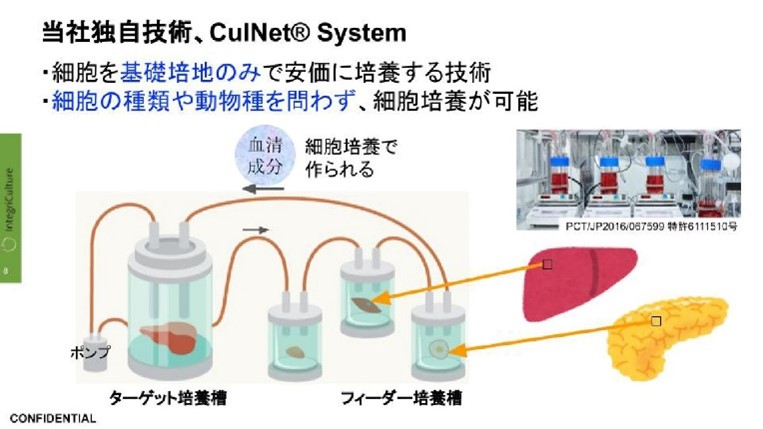
Mr. Hanyu's originsSF, anime, games
I asked Mr. Hanyu about the topic of generative AI.The answer that came back was "great welcome", "because I can become a god"? .The mindset is, "If you combine generation AI and VR chat, you can create anything you want."
Mr. Hanyu's origins are manga, anime, games, and science fiction at the center of them, which he has been familiar with since he was a child.Cultured meat was a staple of science fiction, so while imagining a science fiction world with Lego and building blocks, I knew about it before I knew it.There are many scenes where antiquity and tradition are considered superior, but Mr. Hanyu says that science fiction is "noble".It is because the dream of mankind, what is necessary for mankind, the future that mankind desires, and a warning to the future are drawn there.That's why I dare to call it animation science.
I was fascinated by games because I was drawn to science fiction.When he became a junior high school student, he designed SF-like buildings in "SimCity 3000" (a simulation game that creates a city), created a futuristic city, wrote stories (mostly SF novels) with image editing, and posted them on bulletin boards.When I made a video of Hatsune Miku on Nico Nico Douga, the setting was SF.Exactly what an otaku is.By the way, some of those works already include cultured meat and the name Integriculture, which later became the company name.
However, "The world I've been immersed in is different from the world of sci-fi novels," and "The game isn't a competitive one, either. It's more like making a miniature garden," said Mr. Hanyu.He is interested not only in fantasizing and imagining, but in shaping and expressing them.Cultured meat is one of them.
What Mr. Hanyu really wants to know and what he keeps in mind
What I'm most interested in right now is systems with different OSs (basic software), creatures with different instincts.What kind of world do they see and what kind of consciousness do they have?
There must be science fiction for extraterrestrial intelligent life.What are their dreams like?Let's become familiar bees and ants.We have acquired the instinct of not wanting to work for free in order to survive, and we have created the concept of money. may be makingWhat kind of world is it?Is there bullying or harassment?What are the ideas on which the organization is based?
Hanyu continues.There must be a world where even the laws of physics are different.In order to know them, it is necessary to remove all the assumptions that make you yourself now.
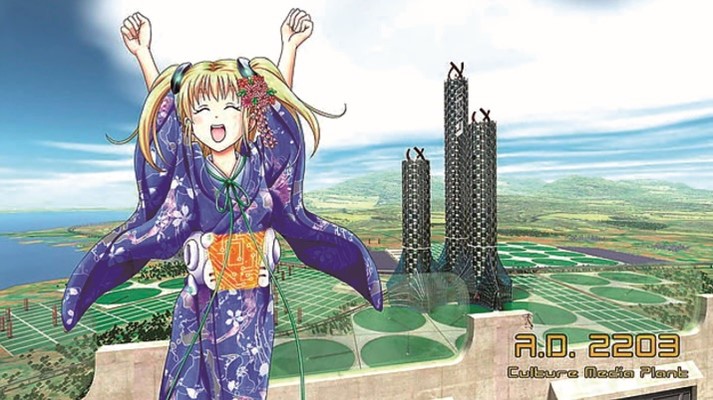
Message to high school students
In Japan, the emergence of innovators who have breakthrough ideas and breakthroughs in conventional technology is eagerly awaited, but what is required here, too, is to "try to remove all presuppositions." Mr. Hanyu.
“People all have the power of imagination.
For one thing, we care too much about what others see.Adults' expectations and advice may also be the cause.In particular, it is necessary to pay attention to the repeated words "should" and "should be" that confuse life hacks (methods and techniques for improving work quality, efficiency, and productivity) with ethics. .
Adults themselves often don't realize it, but let's think about the phrase, "You should go to a good university..." for example. It is natural to wish for my child to be happy, but as advice for that, is it applicable to any child?Isn't that one of the factors that narrows the future possibilities and future paths (choices) of children?At this time, it is necessary for the children themselves to ask themselves, ``Is that an ethics or a life hack?'' and ``Is that life hack wrong?''
"Of course, I didn't know the difference until I graduated from the doctoral course," says Hanyu. “It was only after I became independent that I woke up.
Hanyu continues, ``It is also necessary to be careful not to get too caught up in ``common sense'' and ``good sense,'' where the original purpose is forgotten and only formality remains.This is because in many cases, the established background and purpose of the time have been left behind, and only the rules remain, and on top of that, they are made into goals. “I hear that this applies to chimpanzee society as well, but nothing will progress on that premise. I want you to pay attention to the calculation formula," he advised me not to accept the premise.
“What will become more and more important in the future is to think about other people who have different OSes and systems that depend on them,” said Mr. Hanyu. “Most of the rules and systems in the world seem to rely on human instincts. At times, such values and presuppositions to rely on will crumble.
Many people see this as one of the purposes of developing cellular foods, but one of them is the idea that cows and pigs have feelings and consciousness, so they shouldn't be tormented." “The ultimate is AI,” said Mr. Hanyu. "From now on, we will have to face and live with those who have instincts (basic software) that are completely different from ours," he says, drawing the future.
*5 Neurodiversity: Neurodiversity. Born from the combination of two words, Neuro and Diversity. In particular, the phenomenon that occurs in developmental disorders such as autism spectrum disorder, attention deficit/hyperactivity disorder, and learning disability should be treated as a human being rather than a lack of ability or superiority or inferiority. The concept of ``natural and normal mutations in the genome of
[April 2022, 4, Ministry of Economy, Trade and Industry: "Promotion of Neurodiversity"]
CEO of Integriculture Co., Ltd.
Yuki Hanyu
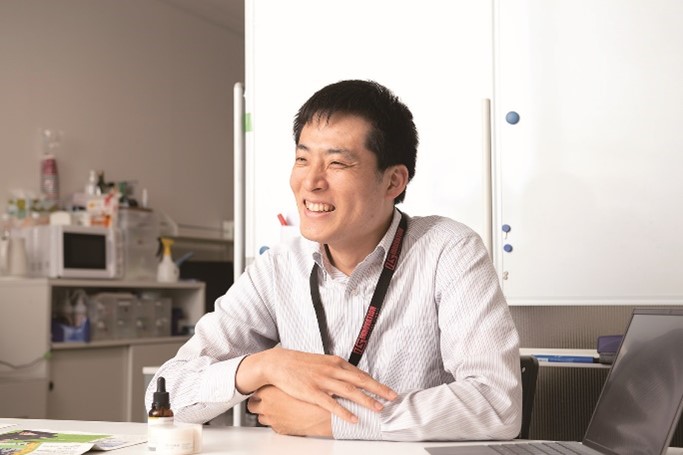
Born in 1985.From Eiko Gakuen Middle School to Pakistan due to his father's transfer.He went on to the University of Oxford from the International School of Islamabad. In 2006, she graduated from the Department of Chemistry, and in 2010 completed her Ph.D.PhD (Chemistry).After working at Tohoku University's Institute of Multidisciplinary Research for Advanced Materials and Toshiba's Research and Development Center System Laboratory, he became independent. Established Integriculture Co., Ltd. in 2015 and continues to this day.One of his recent publications is “Creating Dream Cellular Cultured Meat” (Sakurasha).
Integriculture Inc.
A startup that initially registered to obtain the experimental equipment necessary for the Shojinmeat Project, which promotes the development of cellular foods at Citizen Science.The Japan Cellular Agriculture Institute of the Commons (CAIC), a non-profit think tank born from this, was involved in the establishment of the Japan Cellular Agriculture Research Organization (JACA). , to drive the development of cellular agriculture.

